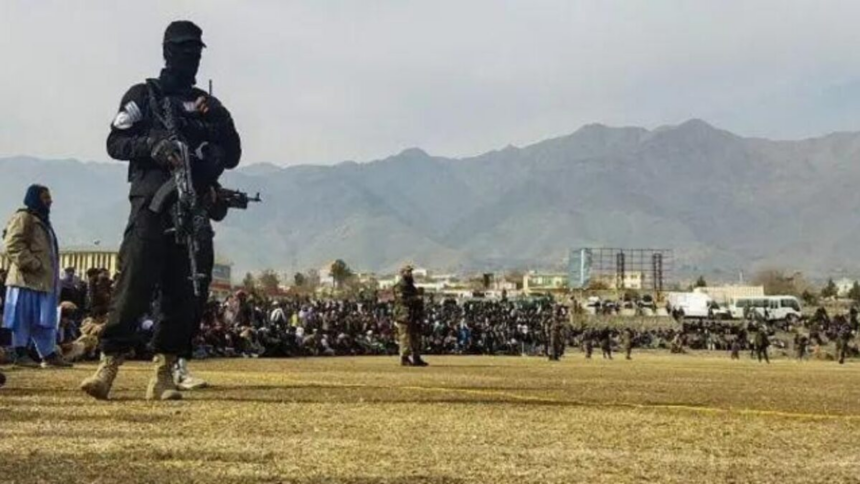RASC News Agency: In yet another grim demonstration of authoritarian control, the Taliban’s Supreme Court has announced that 14 individuals, including one woman, were publicly flogged across four provinces Kabul, Khost, Parwan, and Paktika. The group claimed these individuals were punished for alleged crimes ranging from drug trafficking and theft to “running away from home” a charge routinely used to criminalize women seeking escape from forced marriages or domestic violence. In a statement issued on Thursday, June 5, the Taliban judiciary revealed that nine men in Kabul received 10 to 20 lashes each, accused of selling or trafficking controlled substances such as Tablet K, hashish, and other banned drugs. These individuals were also sentenced to six to seven months of imprisonment.
Additional announcements detail the flogging of a woman and a man in Parwan, accused of fleeing their home. In Khost, two individuals faced corporal punishment for alleged drug offenses, while another man was publicly lashed 36 times and sentenced to two years in prison for theft. The regime further confirmed that two additional individuals, including a woman, in Parwan province received 35 lashes and four-year prison terms. In Khost, two more men were sentenced to between 35 and 39 lashes and over two years of incarceration. These incidents form part of a broader pattern of Taliban brutality. Within the past week alone, the regime has subjected at least 41 individuals across Afghanistan to public lashings a punishment the group shamelessly frames as part of its interpretation of “Islamic Sharia law.”
Despite universal condemnation by human rights organizations, the Taliban continue to use corporal punishment and public executions as tools of social control, delivering verdicts through an opaque judicial system devoid of fairness, accountability, or legal legitimacy. International human rights law unequivocally classifies such punishments as torture and cruel, inhuman, or degrading treatment yet the Taliban persist, emboldened by global silence and weak diplomatic pressure. Of particular concern is the systematic persecution of women, who are often punished under pretexts that reflect deep misogyny embedded in Taliban ideology. Charges such as “escaping from home” are frequently leveled against women who attempt to flee abusive households, forced marriages, or sexual violence. Rather than offering them protection or justice, the Taliban judiciary subjects them to public humiliation and state violence.
The Taliban’s so-called justice system functions not as an arbiter of law, but as a theater of punitive violence, designed to instill fear, enforce ideological conformity, and publicly demonstrate the regime’s control over every aspect of civilian life. As the international community continues to debate diplomatic recognition and aid distribution, the Taliban expand their apparatus of repression with impunity. This latest round of public floggings is a stark reminder that Afghanistan under Taliban rule has become a prison-state especially for women where punishment is public, legal recourse is a fantasy, and justice has been replaced by brutality.
Unless global actors act decisively to isolate the regime, support Afghanistani civil society, and protect victims of Taliban abuse, these spectacles of cruelty will remain the regime’s default method of governance fueled by silence, normalized by neglect, and endured by a population held hostage.






